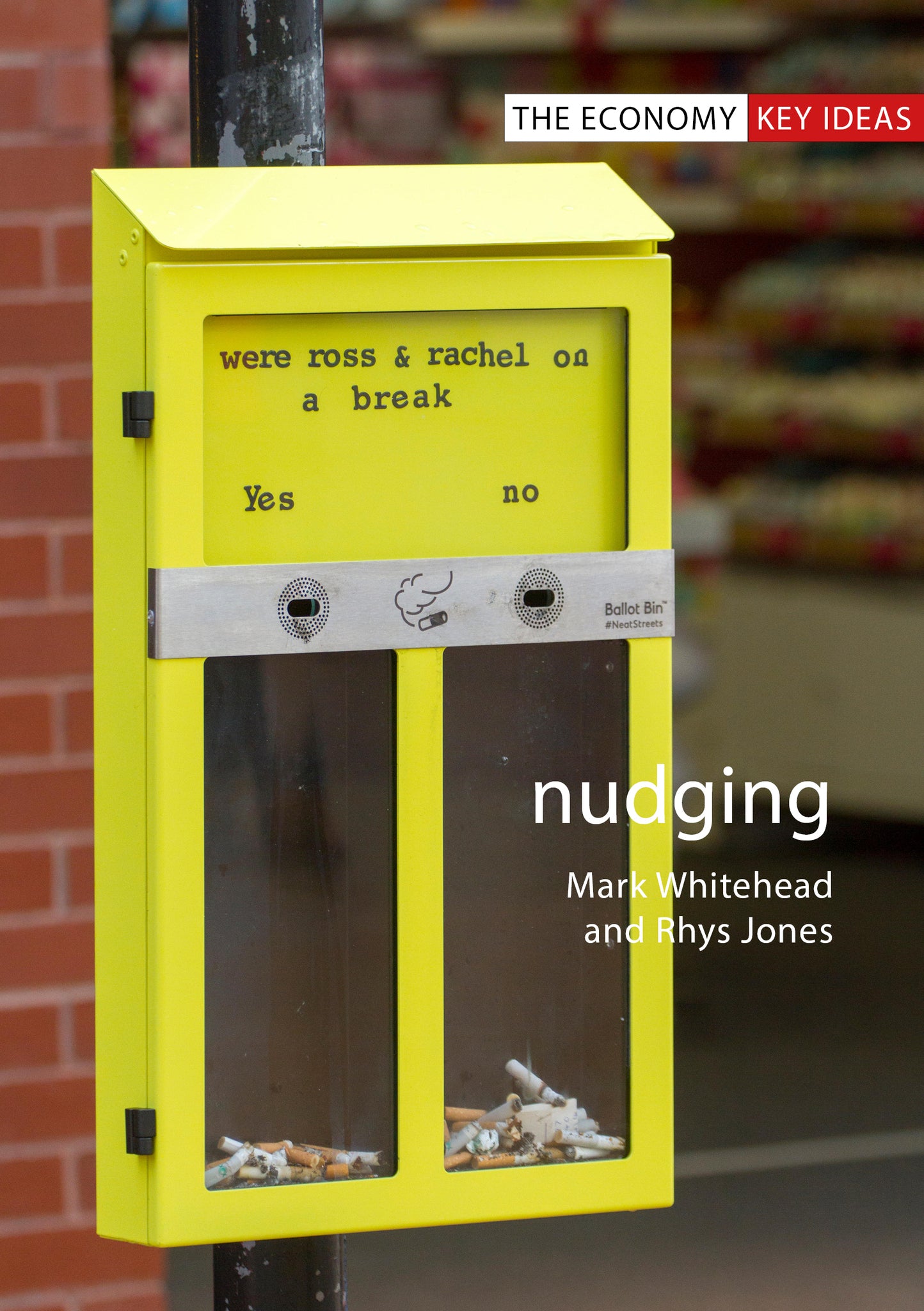We're sorry. An error has occurred
Please cancel or retry.
Nudging

Some error occured while loading the Quick View. Please close the Quick View and try reloading the page.
Couldn't load pickup availability
- Format:
-
16 May 2024

Nudging is a controversial technique for changing people’s behaviours. It burst into public consciousness in the early 2000s with the launch of “nudge units” and departments in government. Its use as a policy tool is particularly polarizing as it raises moral and constitutional issues about freedom of choice and coercion.
Mark Whitehead and Rhys Jones consider how the nudge as a mechanism for policy implementation came about and why it gives rise to such strong feelings. They explain what a nudge is, how it differs from other behavioural prompts, and consider whether we should use them and, if so, when and where they are best deployed. In particular, they explore how the proliferation of digital media throughout our lives has given nudging a new impetus and sphere of operation, which can be both harder for consumers and citizens to detect and more contentious.

POLITICAL SCIENCE / Public Policy / General, Behavioural economics, BUSINESS & ECONOMICS / Consumer Behavior, SOCIAL SCIENCE / Human Geography, PSYCHOLOGY / General, Central / national / federal government policies, Human geography, Psychological theory, systems, schools and viewpoints

A brilliant and thoughtful review of nudge. A highly useful introduction and critique of this important new policy approach.
1. Nudge: a gentle form of power
2. Histories of nudging
3. Nudges in practice
4. Critiques of controversies
5. The digital future
6. Conclusion



